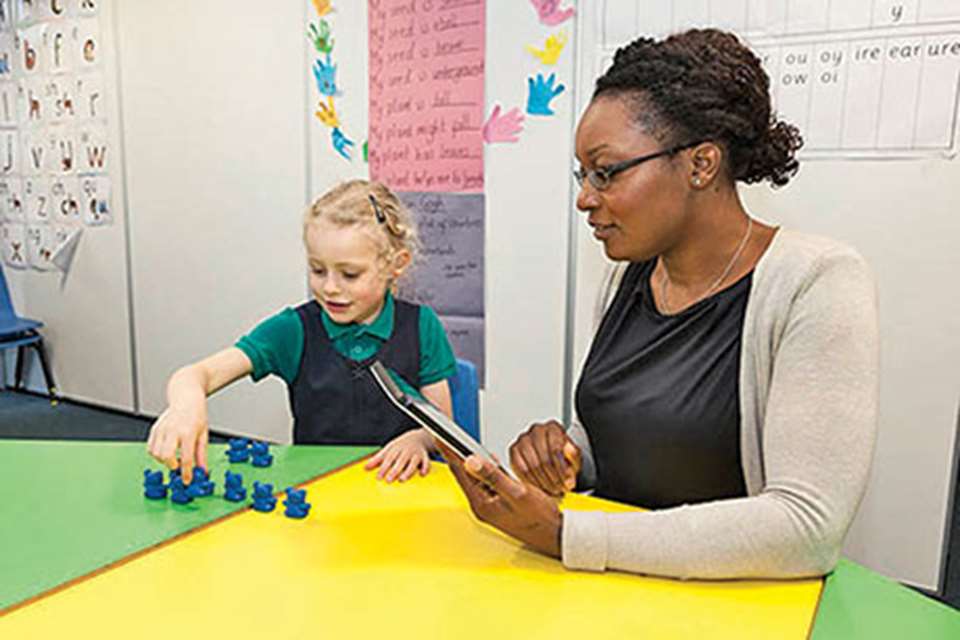Damning report finds Reception Baseline not fit-for-purpose, unethical and damaging
Wednesday, July 4, 2018
The Reception Baseline is ‘flawed, unjustified and wholly unfit for purpose’, according to a report by a leading educational research body.

An expert panel set up by the British Educational Research Association Group has issued a highly-critical report into the Government’s plans for the £10 million assessment test for Reception class pupils.
It concludes that the proposal to use the Baseline of children in Reception to hold schools to account for the progress that pupils have made at the end of Key Stage 2 is not fit-for -purpose and would be detrimental to children, parents, teachers and the wider education system.
For the report, A Baseline without Basis, the panel of academics considered whether the evidence from the assessment literature could justify such a test being used for this purpose and concluded that it would produce unreliable results and would not lead to accurate or fair comparisons between schools.
The report is intended to inform public debate by providing an account of the reasons why the proposals are flawed.
The Government has awarded the contract to the National Foundation for Educational Research (NFER), including trialling, piloting and the first two statutory years of delivering it from September 2020.
The panel argues that the tests cannot be accurate or fair because:
- Just a few months’ difference in early years children’s age produces pronounced developmental difference, but the Baseline does not take this into account.
- Pupil cohorts in primary schools are statistically small, and often have uneven distributions of younger and older children, making it hard to draw valid comparisons between schools.
- Pupil mobility, teacher turnover, and the likelihood of a change in headteacher will all muddy the issue of accountability because either pupil data will be missing, or schools may be held to account for pupils they have not taught continuously in the seven years since the data was first collected.
- It is widely recognised that factors such as parents’ education levels, family income, and having English as an additional language affect attainment, but the Baseline plans will not take these into account when comparing schools, which is not a useful or fair approach.
The Baseline will not lead to fair comparisons between schools because:
- Any value-added calculations that will be used to hold schools to account will be highly unreliable.
- Children will be exposed to tests that will offer no formative help in establishing their needs and/ or in developing teaching strategies capable of meeting them.
- This is an untried experiment that cannot be properly evaluated until at least 2027, when the first cohort tested in Reception has taken Key Stage 2 tests.
The expert panel includes Harvey Goldstein, Professor of Social Statistics at Bristol University, a specialist in analysing educational data; Pamela Sammons, Professor of Education at the University of Oxford, who is widely known for her research on educational effectiveness and improvement; Gwen Sinnott, an independent education performance consultant and former head of management information and analysis at Southwark Children’s Services; and Gordon Stobart, Emeritus Professor of Education at UCL, Institute of Education, who is recognised for his assessment expertise.
Gemma Moss, the chair of the panel and a former BERA President, said, ‘It is both ethically and methodologically questionable to use reception baseline assessment (RBA) for school accountability. As currently proposed, RBA is likely to produce results with little predictive power and dubious validity while the assessment of very young children is hard to justify when it is not being used to support a child's learning.’
There has been widespread opposition among early years experts and teachers to the Government's Reception Baseline plans.
The biggest teachers’ union, the National Education Union, welcomed the ‘timely and authoritative report’.
Kevin Courtney, Joint General Secretary, said, ‘BERA’s expert panel has demonstrated that the Government’s plans for baseline assessment are built on wishful thinking, not evidence.
‘The Department for Education will spend nearly £10 million on introducing tests of four- and five-year olds that cannot produce reliable results, and will not help teachers support children in their learning. This is a gross misuse of resources. The Department must respond to BERA’s detailed critique, and withdraw its wasteful and unjustifiable plans.'
The NEU is part of the More than a Score (MTAS) coalition of parents, teachers, heads and education experts against too much testing and are calling for the Baseline to be scrapped.
In a statement MTAS said the report ‘demolishes the case for baseline assessment’.
The group said, 'BERA has shown that the test cannot in fact do what it is intended to do: it is useless, grossly expensive and clearly not fit-for-purpose.
‘More Than A Score believes that baseline testing will create stress for children entering school for the first time. It will encourage nursery and early years teachers to teach to the test, and spread to early years classes the testing culture which has done so much harm to primary and secondary schools.
‘MTAS will work with parents, teachers and head teachers to stop the implementation of this pointless and damaging test.’
In response, a Department for Education spokesperson said, ‘The Reception Baseline assessment has received support from the schools sector and is being designed and delivered by the National Foundation for Education Research, with pilots in schools across the country, to make sure it works for teachers and their pupils.
‘The assessment is just the first half of a progress measure and an important step in making sure that schools are recognised for the education that they provide to all their pupils whatever their background, including those in reception classes, year one and year two.’
Last month, the Department for Education said it would be inviting a sample of schools to take part in trialling the new assessment in the autumn.
The NFER has been contacted for a comment and this story will be updated when we receive it.
- Read the report here










